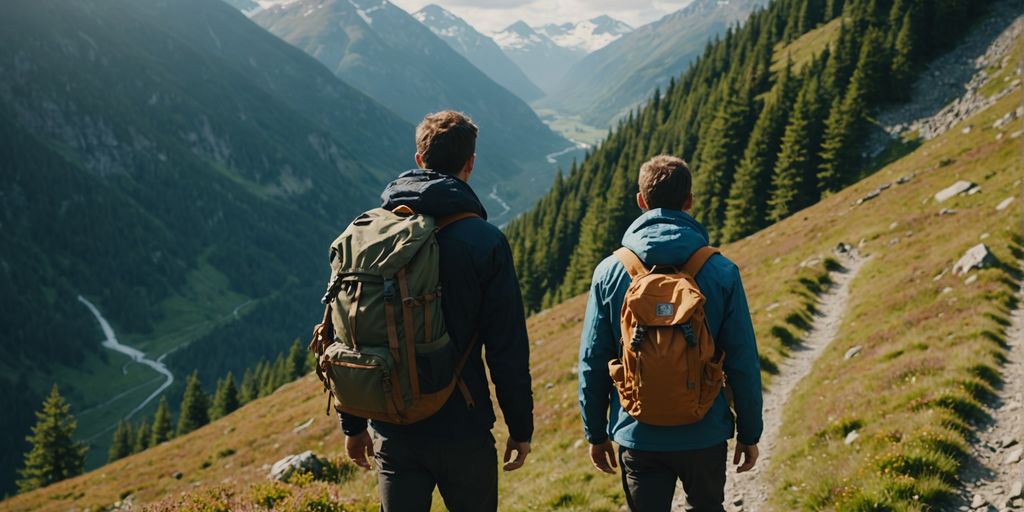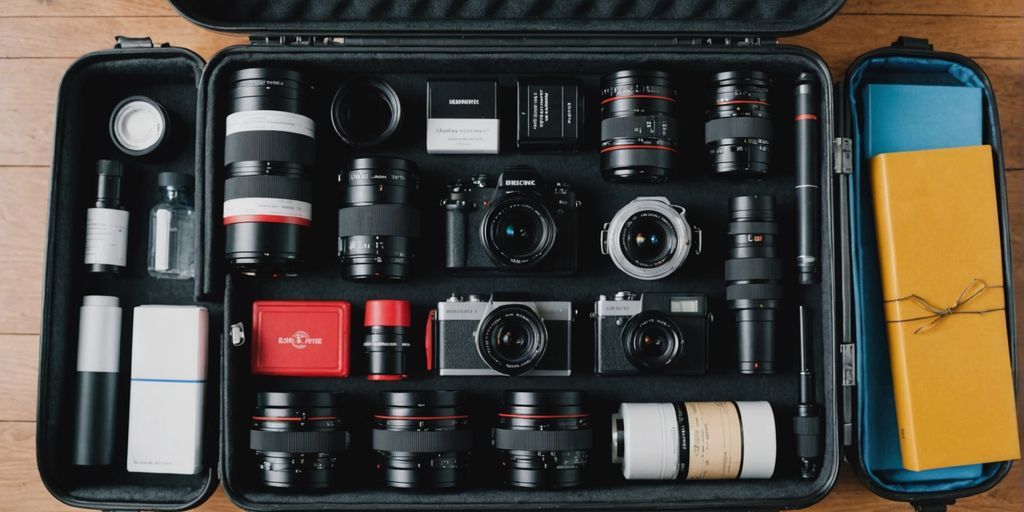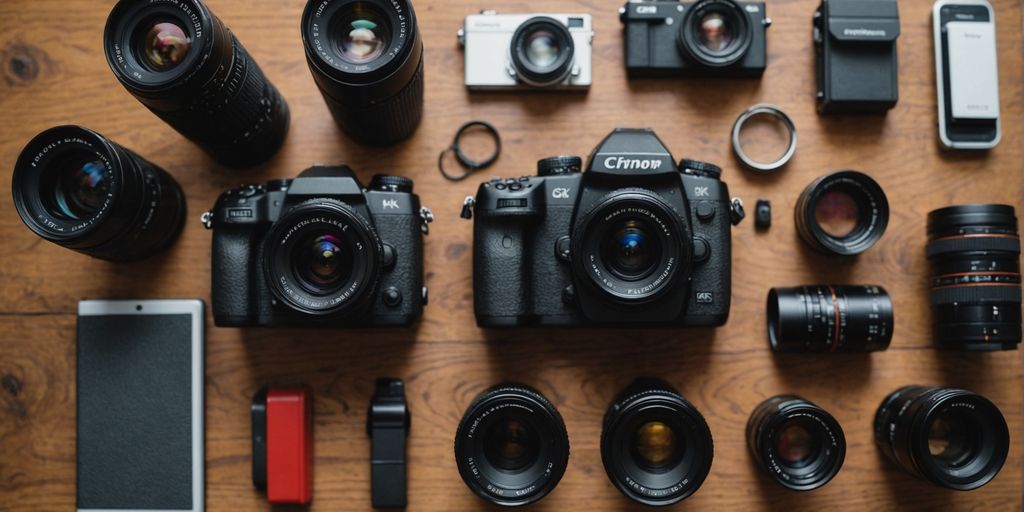Traveling alone can be a thrilling adventure, but it’s important to stay safe while you’re exploring new places. Whether you’re visiting a bustling city or a remote village, there are steps you can take to protect yourself. This guide will give you practical tips to help you stay safe and enjoy your solo journey.
Key Takeaways
- Always research your destination before you go. Know the local customs, laws, and areas to avoid.
- Keep in touch with family and friends. Share your travel plans and check in regularly.
- Blend in with the locals by dressing appropriately and following local etiquette.
- Protect your valuables with anti-theft bags and by using hotel safes.
- Trust your instincts when interacting with strangers and avoid sharing personal information.
Research Your Destination Thoroughly
Before you embark on your journey, it’s crucial to research your destination thoroughly. This preparation can protect you from misinformation and potential dangers. Imagine the trouble you could face if you don’t understand the local currency or the health risks if you’re unaware of necessary vaccinations. Knowing the safe and unsafe areas can also prevent the loss of money and important documents.
Understand Local Customs and Laws
Understanding your destination’s customs and laws is key to staying safe. This knowledge helps you avoid actions that might be considered disrespectful or illegal. For instance, some countries have strict dress codes or rules about public behavior. By learning these in advance, you can ensure a smoother trip.
Identify Safe and Unsafe Areas
Before your trip, learn as much about the area as possible. Utilize online travel blogs, social media, and ask hotel staff for advice. They deal with travelers every day and can point you to the best spots while warning you about places to avoid. This step is essential to avoid wandering into unsafe areas.
Learn Basic Phrases in the Local Language
Learning a few basic phrases in the local language can go a long way. It shows respect and can help you in everyday situations, like ordering food or asking for directions. Even simple greetings or thank you can make a big difference in how locals perceive you.
Stay Connected with Loved Ones
Staying connected with your loved ones while traveling alone is crucial for your safety and their peace of mind. Regular communication can make a big difference in ensuring that someone always knows your whereabouts and can act quickly if something goes wrong.
Blend In with the Locals
Blending in with the locals is a key strategy for staying safe while traveling alone. The best way to stay safe when traveling is to blend in as much as possible with the locals. Tourists are often the targets for robbery and scams, so it’s important to avoid standing out.
Keep Your Valuables Secure
When traveling alone, it’s crucial to keep your valuables safe. Here are some tips to help you do just that.
Use Anti-Theft Bags
Invest in anti-theft bags to protect your belongings. These bags often come with features like lockable zippers and slash-resistant straps, making it harder for thieves to access your items. Some even have hidden compartments to keep your valuables out of sight.
Carry Minimal Cash
Only carry the amount of cash you need for the day. This way, if you lose your wallet or it gets stolen, you won’t be out a significant amount of money. It’s also a good idea to keep some cash in a separate location, like a money belt or a hidden pocket, as a backup.
Utilize Hotel Safes
When staying at a hotel, use the in-room safe to store your valuables. While not completely foolproof, it’s a better option than leaving your items out in the open. Make sure to choose a unique code for the safe and avoid common combinations like "1234" or "0000."
Be Cautious with Strangers
When traveling alone, it’s important to be careful when meeting new people. Trust your instincts; if something feels off, it probably is. Always stay in public places when interacting with strangers to ensure your safety.
Trust Your Instincts
If you meet someone and they make you feel uneasy, it’s best to distance yourself from them. Your gut feeling is a powerful tool, so don’t ignore it. If you find yourself in an uncomfortable situation, move to a safer location immediately.
Avoid Sharing Personal Information
Be mindful of the information you share with strangers. Avoid giving out personal details like your hotel name, room number, or travel plans. Keeping this information private can help protect you from potential harm.
Stay in Public Places
When meeting new people, always choose public places like cafes, parks, or busy streets. This reduces the risk of finding yourself in a vulnerable situation. Public places offer safety in numbers and make it easier to leave if you feel uncomfortable.
Plan Your Transportation Wisely
When traveling alone, it’s crucial to plan your transportation carefully to ensure your safety. Safety should always come first when deciding how to get around in a new place.
Stay Aware of Your Surroundings
When traveling alone, it’s crucial to stay alert and aware of your surroundings. Always be aware of what’s happening around you to avoid potential threats. This can help you stay safe and enjoy your trip more.
Avoid Distractions
Avoid using headphones or getting too absorbed in your phone. This can make you less aware of your surroundings and more vulnerable to theft or other dangers.
Recognize Potential Threats
Pay attention to people and situations that seem out of place. Trust your instincts and remove yourself from any situation that feels unsafe.
Keep Emergency Contacts Handy
Always have a list of emergency contacts easily accessible. This should include local emergency numbers, as well as contacts for family or friends back home.
Prepare for Emergencies
When traveling alone, it’s crucial to be ready for any unexpected situations. Knowing local emergency numbers can be a lifesaver. Make sure to research and note down the numbers for police, medical services, and your country’s embassy before you leave.
Know Local Emergency Numbers
Carry a First Aid Kit
A well-stocked first aid kit is essential. Include items like bandages, antiseptic wipes, pain relievers, and any personal medications. This can help you handle minor injuries or illnesses on your own.
Have a Backup Plan
Always have a backup plan in case things go wrong. This could include having extra copies of important documents, like your passport and travel insurance. Keep these copies in a separate place from the originals. Additionally, know the locations of nearby hospitals and police stations. This way, you can quickly get help if needed.
Choose Accommodations Carefully
When traveling alone, choosing the right place to stay is crucial for your safety. Here are some tips to help you make the best choice:
Read Reviews
Before booking, always check reviews on sites like TripAdvisor. Look for comments about safety and security features. This can give you a good idea of what to expect.
Check Security Features
Make sure the hotel has good security measures. This includes things like security cameras, well-lit areas, and secure locks. Avoid ground floor rooms for added safety.
Stay in Well-Lit Areas
Choose accommodations in well-lit and busy areas. This makes it easier to find your way and reduces the risk of encountering unsafe situations.
By following these tips, you can ensure a safer and more enjoyable solo travel experience.
Maintain a Low Profile
When traveling alone, it’s crucial to maintain a low profile to avoid drawing unnecessary attention. This can help you stay safe and enjoy your trip without unwanted interruptions.
Stay Healthy While Traveling
Traveling alone can be exciting, but it’s important to stay healthy. Visit your doctor or a travel clinic before you leave to ensure you have the right inoculations. When packing, bring a supply of any prescription drugs you may need, face masks, hand sanitizer, and items to protect yourself from mosquitoes and other potentially disease-carrying pests. It’s wise to do your research regarding the safety of drinking water, fresh produce, and dining establishments at your destinations to help avoid illnesses during your travels.
Conclusion
Traveling alone can be an exciting and rewarding experience, but it’s important to stay safe. By following the tips and advice shared in this article, you can enjoy your solo adventures with more confidence and peace of mind. Remember to stay aware of your surroundings, keep in touch with loved ones, and trust your instincts. Safe travels!


